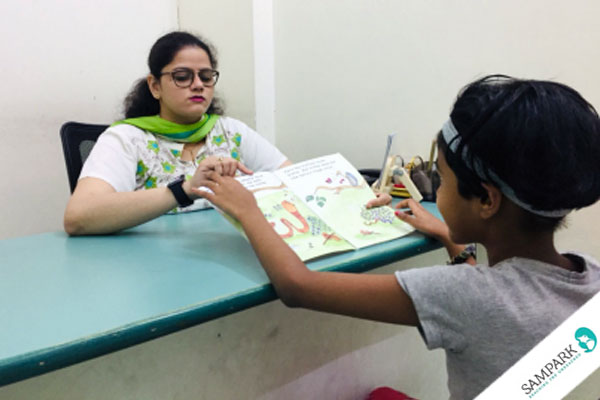
Language and Literacy Disorders in Children and Adults
Language-based learning disabilities are literacy-related problem with reading, spelling and writing and include dyslexia.
Children with language disorder generally have deficits in core language area such as morphology, syntax and semantics. The difficulty may range from mild to severe and affect oral. receptive and expressive language and written language. Children with language disorder will most always have difficulty with phonological awareness which is vital early reading skills and working memory, a key skill which relates to holding onto newly learnt information just long enough to manipulate it meaningfully.
Children with language disorder have difficulty with most aspects of learning. These children's low language, phonemic awareness and working memory skills impact all aspects of academic learning. Children with this disability are generally poor readers and have poor comprehension skills.
Children with reading disorder (dyslexia) have good oral language skills and adequate comprehension. These children most often have difficulty with phonological awareness and phonological working memory which limits their ability to make the sound-letter link, necessary for accurate decoding and when learning new words.
Children with reading comprehension difficulty often fail to comprehend the complexity of written language due to problems with syntactical awareness and below average vocabularies. These children can read fluently which often masks their reading difficulty.
Much of the information on this page about differential diagnosis of language literacy disorders has been condensed onto a handy chart which can be accessed below.
Children with language disorder generally have deficits in core language area such as morphology, syntax and semantics. The difficulty may range from mild to severe and affect oral. receptive and expressive language and written language. Children with language disorder will most always have difficulty with phonological awareness which is vital early reading skills and working memory, a key skill which relates to holding onto newly learnt information just long enough to manipulate it meaningfully.
Children with language disorder have difficulty with most aspects of learning. These children's low language, phonemic awareness and working memory skills impact all aspects of academic learning. Children with this disability are generally poor readers and have poor comprehension skills.
Children with reading disorder (dyslexia) have good oral language skills and adequate comprehension. These children most often have difficulty with phonological awareness and phonological working memory which limits their ability to make the sound-letter link, necessary for accurate decoding and when learning new words.
Children with reading comprehension difficulty often fail to comprehend the complexity of written language due to problems with syntactical awareness and below average vocabularies. These children can read fluently which often masks their reading difficulty.
Much of the information on this page about differential diagnosis of language literacy disorders has been condensed onto a handy chart which can be accessed below.

